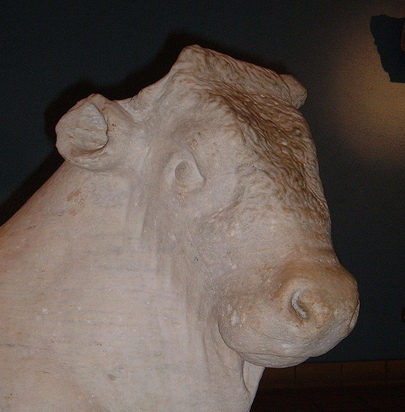The Da Vinci Code trial ended last Friday with the judge finding in favour of Mr Brown. I think this was the only realistic verdict. As George MacDonald Fraser said in the Telegraph at the weekend:
They’ve got to lose that case … If they win it’s going to make writing historical fiction very difficult. Anyway, as I understand it, there’s no copyright in ideas.
However, it would have been far more entertaining had the the verdict gone the other way. I don’t know quite how these things work, whether it would have come down to enormous damages or cessation of Da The Vinci Code’s sale, but it would certainly have thrown a spanner in the works of the forthcoming film (tagline Seek the truth
). As it is, the conspiracy of the Templars (the Temple in London is still linked to the law in England!), masons (everyone knows all judges are masons!), and the Priory of Sion (a secret society, which is why they weren’t overtly connected to the trial, although they surely must have been!) won after all and Baigent and Leigh are effectively ruined. Anyway, there is a trailer for the film on Google Video. I have my suspicions the film will be better than the book.
Aside from the news page linked above, the BBC offer a number of interesting pages on the trial:
- Extracts from the judge’s ruling, including the following, which contradicts the assumption that the case was won on the idea that a novel can’t be found to infringe the copyright of a ‘history’ book:
There is nothing for example in this case, which if decided in the claimants’ favour, would stultify creative endeavour, obtain a monopoly on ideas or historical information or create a precedent which extends the boundaries of copyright protection in sphere of literary works.
The complete text of the ruling is available and I intend to try and at least skim through it if I get the chance. - Reactions of the protagonists to the verdict, including the following quote from Richard Leigh:
I think by its very nature, this case entailed a conflict between the spirit of the law and the letter of the law. We lost on the letter of the law, I think we won on the spirit of the law, and to that extent we feel vindicated.
No, you lost, and I can’t see how the judge’s ruling in any way vindicated the plaintiffs. As I said above, I mean to give the ruling more of a read. If I can be bothered. - Would you buy a second-hand car from one of these?. That’s not what the story says, of course, but it does give pictures, and does beg the question. If I had to purchase a second-hand Ford Escort from any of them, I have to admit I would go for Dan Brown, providing his wife didn’t do the research on the car’s history. I would have serious reservations about approaching Richard Leigh on a dark night. I’m sure they’re all lovely really.
Roll on the film this Christmas on ITV!

There’s one thing I don’t understand about this case (apart from the fact that it ever got to court). Brown claimed not to have read Da Holy Blud, yet the villain’s name in his novel is an anagram of Baigent. That seems a trifle coincidental to me.
I think he claimed that he read other sources first, came up with the basic plot, then read HBHG. As the judge wrote: “What is extraordinary about Mr Brown’s evidence is that he appears to have acquired all of the books that cover this area apart from the one that is described [in the book Templar Revelations which Mr Brown did consult] as essential reading” (ruling, para 203).